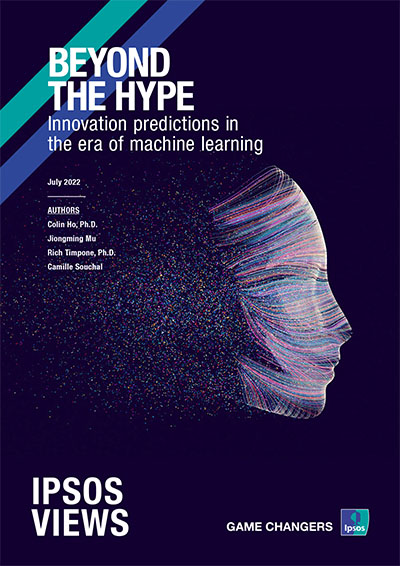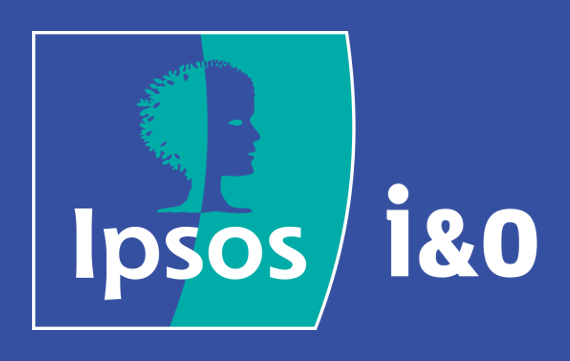Beyond the Hype: Innovation predictions in the era of Machine Learning
 Artificial intelligence (AI) has grown in popularity in recent years. Voice and facial recognition software is developed in all technical gadgets. In this context, we are also beginning to see how AI can also alter market research, resulting in faster, cheaper, and better results.
Artificial intelligence (AI) has grown in popularity in recent years. Voice and facial recognition software is developed in all technical gadgets. In this context, we are also beginning to see how AI can also alter market research, resulting in faster, cheaper, and better results.
Beyond the Hype focuses on a single domain: the application of Machine Learning (ML) to forecast the success of new product innovations. The nature of the data for training predictive analytic models is crucial, as demonstrated by how Ipsos' predictive model of innovation success directly tackles the practical problems involved.
Training an AI/ML model to recognise an innovative product development is largely similar. We need samples of both successful and unsuccessful inventions so that an AI/ML model may learn to recognise the traits that anticipate successful breakthroughs.
A concept-based predictive model may perform well for a year or two but will quickly become obsolete due to rapid market changes, and where it does perform well is for items that seem like those already on the market rather than truly new ones. As a result, a concept-based approach that is built on independent features and benefits in the descriptions may not accurately represent the attractiveness of a new product innovation.
It should be noted that the notion of what is effective or ineffective might be subjective. To anticipate performance, we rely on consumers' verbatim reactions to concepts. We can create AI/ML predictive models based on prior data by using users' verbatims.
As of February 2022, we have accumulated about four million consumers’ responses from testing new product concepts across 60+ countries and seven mega-categories (human food, beverages, health care, homecare, personal care, beauty care, and pet care). This database contains the information we need to train our predictive models and ensure their robustness across a wide range of concepts and answers. Like with any study or analytic technique, a thorough knowledge is required to ensure the effective usage and application, which is why we focus on augmented intelligence in innovation testing, merging human and machine learning for the purposes of testing.

![[WEBINAR] From Shopper Insight to Shelf Action](/sites/default/files/styles/list_item_image/public/ct/event/2026-01/Simstore%20Webinar_Website%20image_v0.2.webp?itok=frb54ICz)
![[WEBINAR] Taste of the Future](/sites/default/files/styles/list_item_image/public/ct/event/2025-06/Food%20Event_webinar_v0.1_0.png?itok=iUbrFQ9Q)
![[EVENT] Taste of the Future](/sites/default/files/styles/list_item_image/public/ct/event/2025-04/Taste%20of%20the%20Future_website_v0.2.png?itok=3YDqzvum)